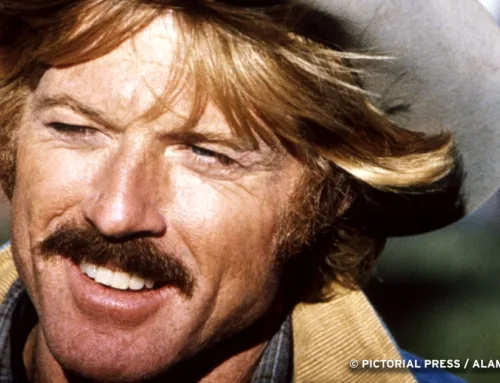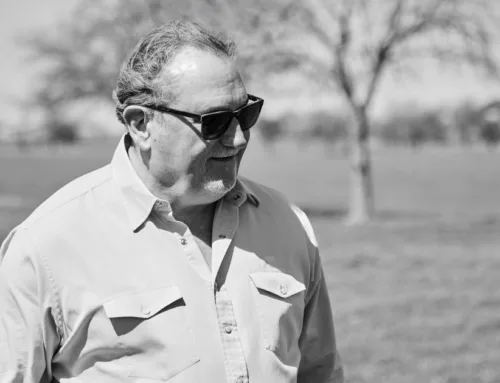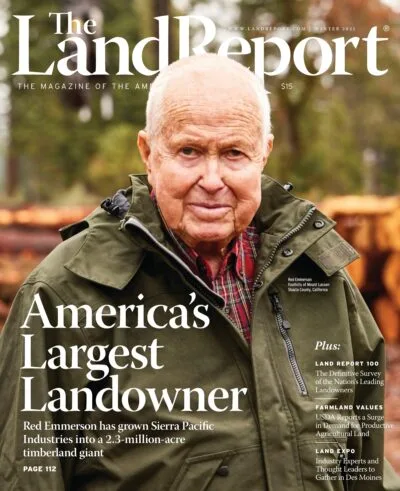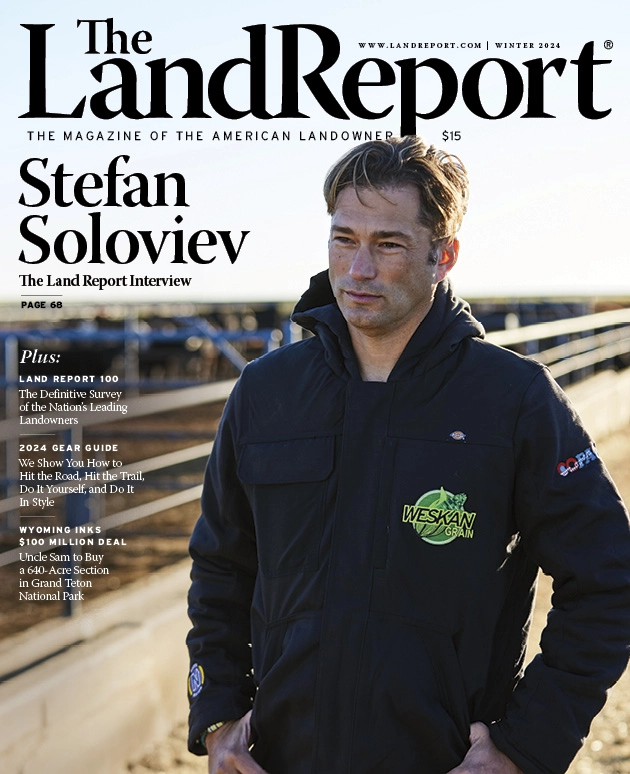Drew Bledsoe Vintner Extraordinaire
Drew Bledsoe Vintner Extraordinaire
By Eric O'Keefe
Photography By Mark VanDonge
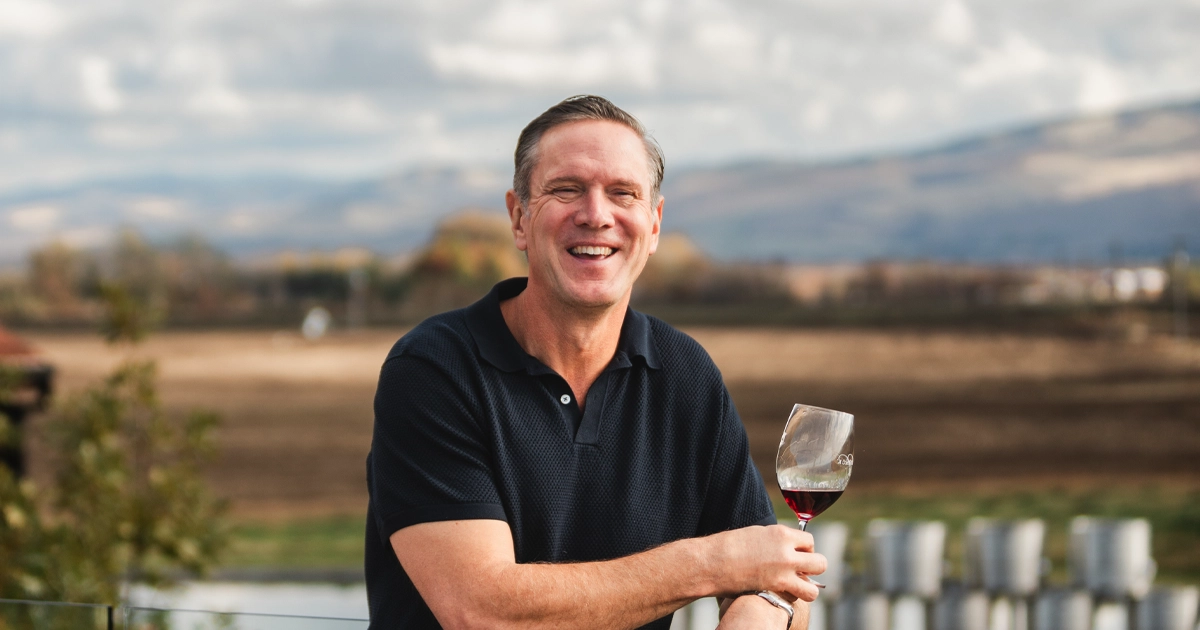
LR_DrewBledsoe-01
When Drew Bledsoe set his sights on becoming a vintner, he approached his new calling with the same commitment that defined his NFL career: He’s in it to win it.
It’s hard to imagine a more all-American town on this picture-perfect autumn afternoon than Walla Walla, Washington. Bright blue skies frame the Blue Mountains hugging the Oregon state line. Crisp crackling leaves punctuate every step. Fluttering banners on cast-iron lampposts honor “Walla Walla’s Hometown Heroes” — men and women of all creeds and colors who served their country. Beneath the banners, there’s not a single parking space to be found. The irony is not lost on Walla Walla’s favorite son, Drew Bledsoe.
“When I graduated from Walla Walla High School, you could have shot a cannon through downtown Walla Walla and not hit anyone,” he says. “Come to think of it, I doubt anyone would have heard the cannon in the first place,” he adds.
Fall Release Weekend
Bledsoe is seated on the patio at his Bledsoe Family Winery, a stylish bistrolike setting at the corner of East Main and Palouse Streets. It’s jam-packed with wine-club members quaffing the latest releases from Doubleback, Bledsoe Family Winery, and Bledsoe McDaniels Winery. His wife, Maura, is by the bar chatting with several members. Director of Winemaking Josh McDaniels is topping off a pour. It’s the first weekend in November — Fall Release Weekend in Walla Walla — and there’s not a hotel room nor a parking space to be found. The more popular restaurants — TMACs and the Walla Walla Steak Co. — have been booked for weeks. The T-Post Tavern, a hot new spot on the south side of town, tells me they actually do have a single table available — at 4:30.
Although he’d be the last to admit it, Bledsoe has been one of the many catalysts stoking the rebirth of his hometown. He literally grew up alongside Walla Walla’s wine industry. In 1984, when he was in junior high, the Walla Walla Valley became an AVA (American Viticultural Area). Six years later, when he graduated from Walla Walla High School, he recalls “maybe five or it could have been six” commercial wineries in the valley.
In the decades that followed, both came of age. Bledsoe’s record-setting career included a three-year stint at Washington State before the New England Patriots made him the first overall pick in the 1993 NFL Draft. Only a year later, he became the youngest quarterback ever to play in the Pro Bowl. In 1997, he engineered the resurrection of the New England franchise when he guided the team to Super Bowl XXXI. Patriots owner Robert Kraft credits Bledsoe with building the platform that enabled the storied franchise to win six Super Bowls over the next two decades.
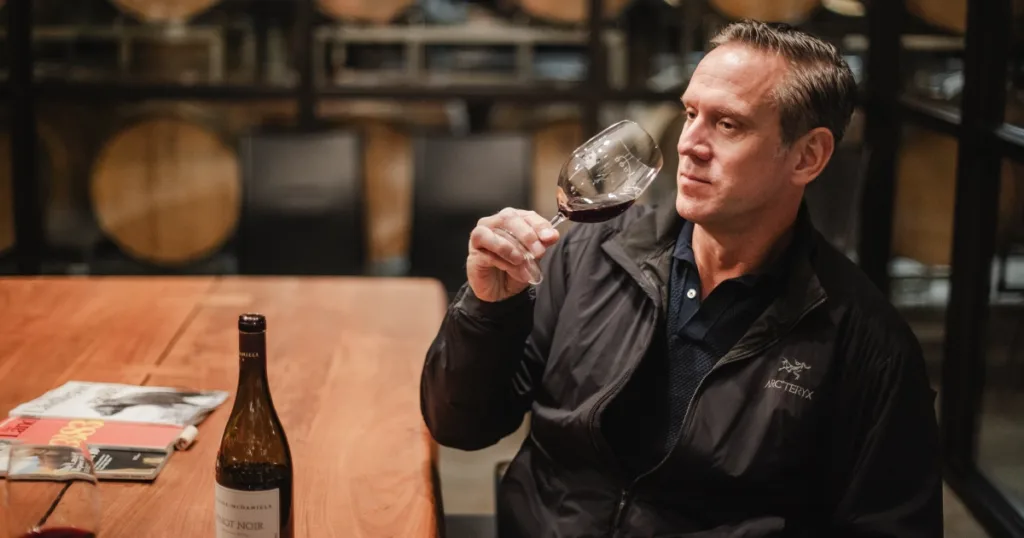
As a vintner, Bledsoe admits that he’s completely selfish. “We make wine for ourselves.”
Walla Walla AVA
Walla Walla charted a similar meteoric rise. In 1977, Gary and Nancy Figgins established Leonetti Cellar, Walla Walla’s first commercial winery. Located on a farm east of town that Gary’s great-grandparents first tilled in 1906, the aspiring vintners chose well.
Prehistoric volcanic activity and the cataclysmic Missoula floods created one-of-a-kind soil conditions, ideal for Vitis vinifera. Yet until Figgins’s first plantings, wine grapes were not even considered cash crops in Eastern Washington. The vast majority of wine grapes were grown, harvested, and crushed by Italian immigrants, such as Figgins’s ancestors, for their own personal consumption. Like most grape-growing regions, the nascent commercial sector had been decimated by the Eighteenth Amendment, aka Prohibition.
Instead, Walla Walla Sweet Onions reigned as the region’s king crop, a lofty status that dated back to the 19th century. Wonderfully zesty Walla Walla Sweets have long vied with Vidalia Onions for national bragging rights. The massive Jolly Green Giant cannery in nearby Waitsburg showcased another Walla Walla County staple: peas. Lush soil conditions have long made Eastern Washington home to some of the most nutritious dryland wheat in the world. To this day, more than 2 million acres are planted in every direction around Walla Walla.
Leonetti Cellar
But Gary Figgins’s 1974 planting of a few cuttings of Cabernet Sauvignon and Riesling altered that pecking order. When Wine & Spirits magazine named his first vintage — Leonetti 1978 Cabernet Sauvignon — the best in the nation, the most common question in American winemaking circles quickly became, “Where the hell is Walla Walla?” No doubt this was especially so among the 55 California also-rans.
A decade later, Walla Walla wines had come into their own. And so had the palate of the New England Patriots starting quarterback. “I didn’t really discover how special this place was from a wine standpoint until the mid to late 1990s,” Bledsoe says.
New England Patriots
“A lot of us on the Patriots got into wine. Like most people, we started with Napa wines. Maura and I took a trip to Napa and loved it. Then I started inviting guys like Tedy Bruschi over to the house for a nice dinner, and he’d ask, ‘What should I bring?’
“ ‘A nice bottle of wine would be great,’ I’d say.”
“So we would do blind tastings. Then I decided to throw some wine from Walla Walla into the mix. If you can believe this, we put all the wines in paper bags, lined them up, tasted them, and then we would just vote. It was a very scientific system, I know, but every time we did this, the Walla Walla wine would win,” he says.
A seed was planted. “I thought, ‘Maybe when I’m done with this football thing, we could go back home and get involved in the wine biz,’ ” he says.
Robert Kraft Shares His Secrets
Bledsoe’s next step? He took a page out of Patriots owner Robert Kraft’s playbook. “I remember asking him what the one thing was that separated the Patriots from every other franchise in the NFL,” he says. Kraft’s answer? “Everything.”
“We try to be the best at concessions. We try to be the best at parking. We try to be the best at salary-cap management. Everything,” Kraft told Bledsoe.
Bledsoe took Kraft’s counsel to heart. “From the start, this was never going to be a hobby winery. Having a hobby winery with your name on a bottle is cool, but we always intended to actually build a business,” he says. But he certainly didn’t expect to build a flagship brand either.
“Early on, we were not thinking that we were going to have three wineries and have 60 employees. We were just going to be a cool little boutique winery and hopefully make some good wine,” he says.
Bledsoe’s approach, however, was anything but boutique-y. For his first-round draft choice, he picked Chris Figgins, the son of the very couple who had put Walla Walla wines on the map. The importance of that decision is felt to this day.
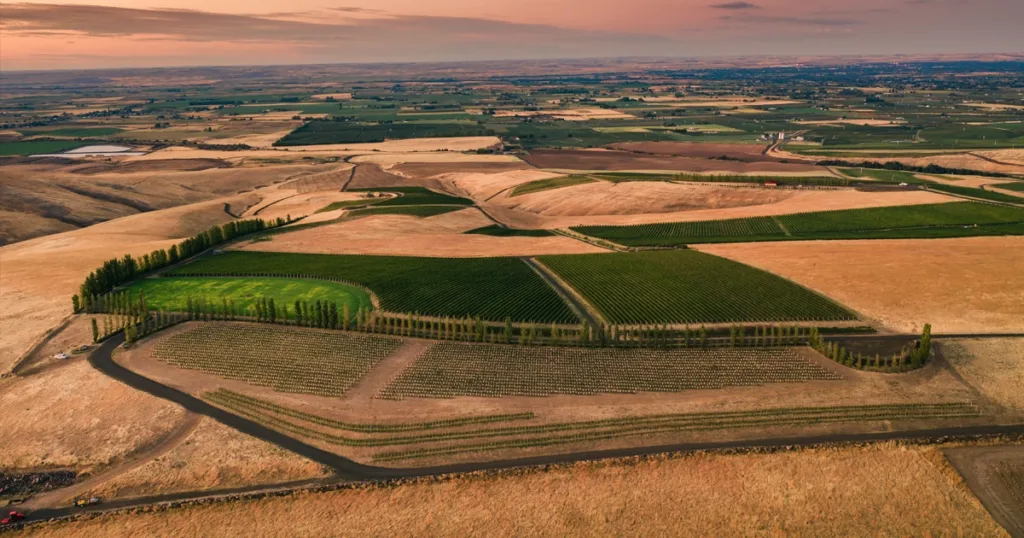
MCQUEEN VINEYARD. Bledsoe’s original estate vineyard, this challenging block sits atop a ridgeline of fractured basalt at 1,440 feet.
Winemaker Josh McDaniels
Not only did the first vintage of Doubleback sell out in a matter of weeks, but Wine Spectator named it one of the Top 100 wines in the world. Just as importantly, thanks to Chris Figgins, Bledsoe eventually teamed up with Josh McDaniels.
“So Chris was our first winemaker, and Josh was his protégé. He’s worked on every vintage of Doubleback since our second vintage in 2008. He knows the DNA in a way you can only know it if you grew up with it,” he says.
McDaniels not only became lead winemaker but is now a partner in Bledsoe McDaniels Winery. The morning of our interview, Bledsoe hosted a celebration for McDaniels and Joe Woolsey to mark their 10th anniversaries as lead winemaker and associate winemaker, respectively.
Such milestones are integral elements of the culture that Bledsoe has hardwired into his companies “to create a workplace that people want to be a part of.”
Doubleback Winery
Bledsoe’s wine brands now include Doubleback, which refers to his decision to return to Walla Walla, Bledsoe Family Winery, and, most recently, Bledsoe McDaniels Winery.
“We scaled up slowly,” he says. “We started out in 2007 and sold our first bottle of Doubleback in 2010. That year we sold 600 cases of wine. We went from 600 in 2007 to 900 cases in 2008, 1,200 cases in 2009, then 1,600, and finally to about 3,000 cases of Doubleback. That’s still where it’s at.”
Some of the most valuable lessons Bledsoe learned came from winemaking pioneers in Walla Walla. “It’s the exact opposite of the NFL where you want the other team to lose and lose badly. In the Walla Walla Valley, guys like Gary Figgins and Rick Small, Marty Clubb, and Norm McKibben wanted me to be successful. There’s a strong sense that if my neighbor does well, it’s good for me. Everyone is trying to elevate the entire valley,” he says.
Long-Term Asset Value
There’s one other element to growing grapes in the Walla Walla Valley that appeals to the former NFLer. “We’re producing fruit that is on par with any in the world. But our land-acquisition costs are a fraction of what you’d pay in other regions that produce similar fruit. We feel like we’re producing fruit that’s at least comparable with what you get in some places in California. Yet our land-acquisition costs are less than 10 percent of what they pay for high-end property down there. Because of that, we continue to be bullish on the long-term asset value of what we’re buying,” he says.
And don’t forget the secret sauce that Bledsoe, McDaniels, and their team add to heighten those returns.
“By owning and controlling the land, the quality of wines we produce is completely in our control. So if you can produce something that’s very valuable from land, and you believe in your land’s long-term appreciation, then that’s where we are. It’s certainly not a model we invented. I’ve dabbled in other investments, but this is really something that I know well. This is my briar patch. I feel like I know this as well as anybody. We know which land is going to be producing great fruit. And if it’s producing great fruit, then the underlying asset value is always going to be strong,” he says.
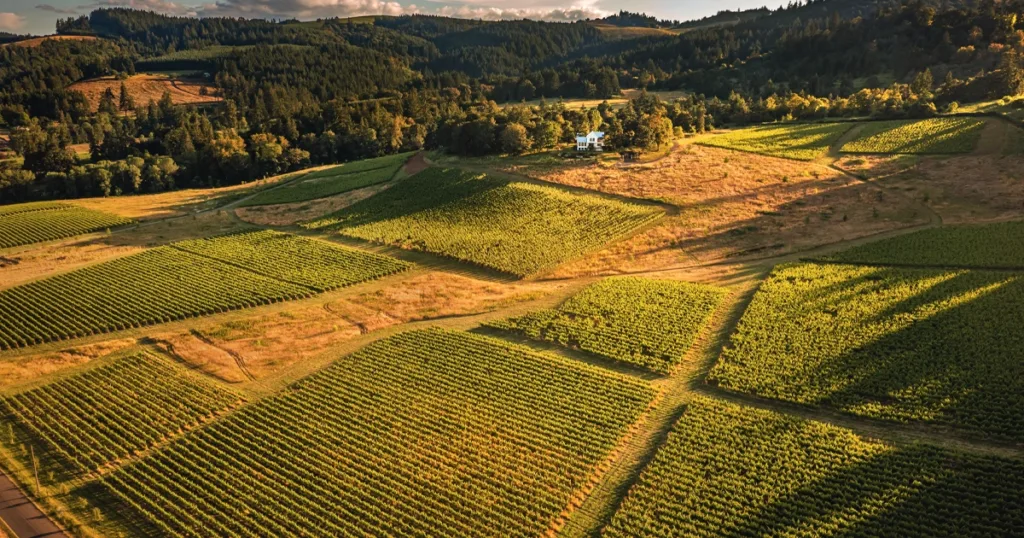
COULEE VINEYARD. This Willamette Valley block is planted in Pinot Noir, Chardonnay, and Chenin Blanc.
Originally published in The Land Report Winter 2023.


